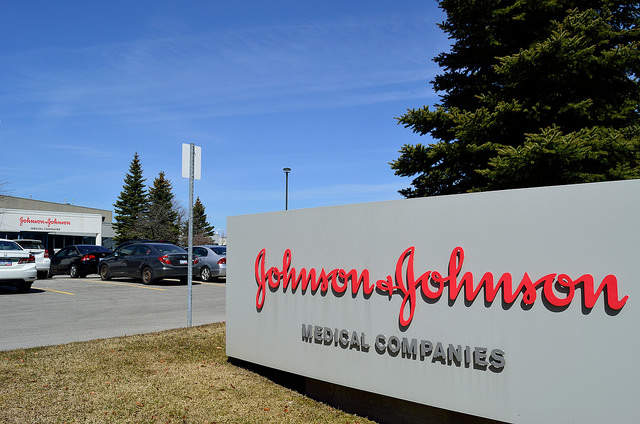
The US Food and Drug Administration (FDA) has approved Johnson & Johnson’s (J&J) next-generation prostate cancer drug apalutamide, to be sold under the brand name Erleada.
The treatment is a receptor inhibitor that targets non-metastatic castration-resistant prostate cancer. It is the first of its kind to reach the market, assisting patients who would usually have no treatment options until their cancer spreads. Analysts have predicted the new drug could bring in sales of over a billion dollars to the company.

Discover B2B Marketing That Performs
Combine business intelligence and editorial excellence to reach engaged professionals across 36 leading media platforms.
The FDA’s decision follows the success of the drug’s Phase III SPARTAN trial, which involved 1,207 patients and demonstrated that Erleada reduces the risk of distant metastasis or death by 72%. It also increased media metastasis-free survival by more than two years.
J&J is not the only company developing a treatment for nonmetastatic prostate cancer, with Pfizer making headway with its drug Xtandi. Their Phase III trial PROSPER showed Xtandi in combination with androgen deprivation therapy reduced the risk of developing metastases or death by 71%. Marketing applications based on the results of PROSPER have been submitted to the FDA and the European Medicines Agency, and are being considered for full review.
However, the speed with which Erleada was approved gives J&J the advantage of having its drug on the market first in the US, and under review in Europe as of last week.
The approval comes earlier than the anticipated decision date of April, and the FDA has agreed to review the drug within a six-month period as opposed to the standard ten months due to its perceived importance. It is timely for J&J, which is currently facing the prospect of generic competition for its best-selling cancer drug Zytiga.

US Tariffs are shifting - will you react or anticipate?
Don’t let policy changes catch you off guard. Stay proactive with real-time data and expert analysis.
By GlobalDataIn the first quarter of 2017 alone Zytiga drew in $755 million in sales, up 45% on the previous Q4. However, last month the US Patent and Trademark Office overturned a patent protecting Zytiga from generic competition until 2027. Though J&J has appealed, generics firms such as Argentum are poised to flood the market with cheap copies.
The past year has been something of a rocky time for J&J, with the company becoming embroiled in a number of legal battles. In September last year Pfizer sued J&J for using anti-competitive tactics. Pfizer claimed that J&J was intentionally damaging sales of Pfizer’s arthritis drug Inflectra, a cheaper alternative to J&J’s Remicade. The drug is one of J&J’s best-selling medicines, bringing in nearly $7 billion in 2016. Following a US appeals court decision to invalidate a protective patent for Remicade, it has faced competition from copycat biosimilars, with Pfizer being the first to launch a version in the US market.
The company was also taken to court in November 2017 by patients claiming it had been knowingly selling defective artificial hips. A Dallas jury ordered J&J to pay $79 million in damages and $168 million in punitive damages to several patients whose artificial hips had to be surgically removed due to their premature failure.
However, J&J has also achieved significant financial success in 2017. The company topped Wall Street’s fourth quarter earnings and revenue expectations, with its new cancer drugs and acquisition of Swiss biotech Actelion bumping figures. Its blood cancer drugs Darzalex and Imbruvica were shown to have pulled in significant earnings in the company’s fourth quarter, with its plaque psoriasis treatment Tremfya also demonstrating strong growth. Blood thinner Xarelto also surpassed analysts’ expectations, reaching $710 million compared to the anticipated $669.5 million.





